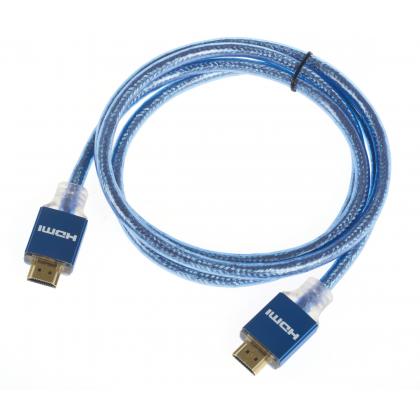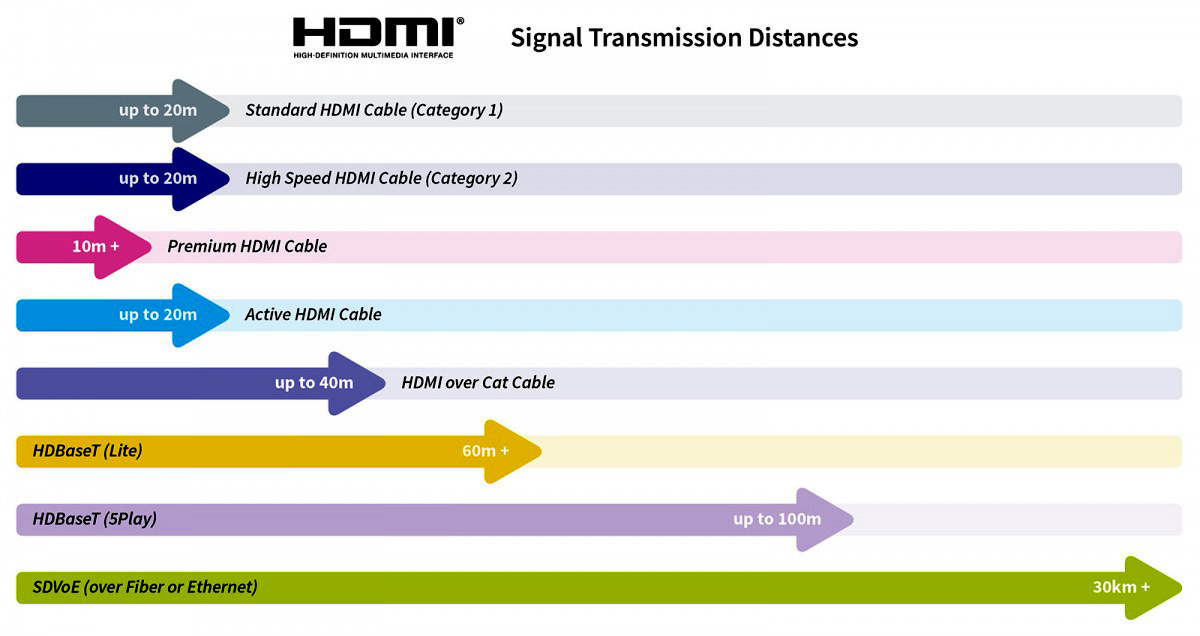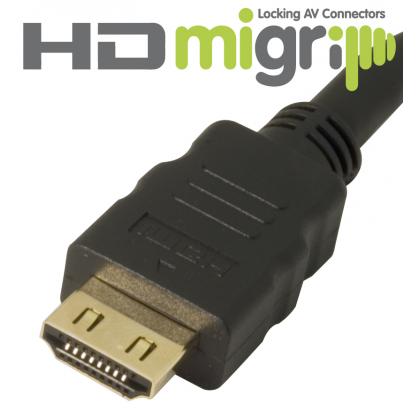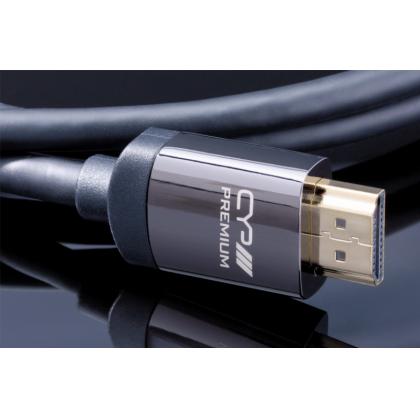How far can an HDMI signal transmit?
HowToAV explains how far HDMI signals can transmit and the different capabilities of the various HDMI cable standards from video source to display.
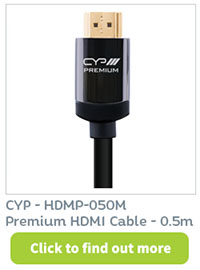 HDMI (High Definition Multimedia Interface), the combined HD video and audio signal standard is now the most commonly used cable interface for residential, home theater and commercial AV systems. Most commonly, a HDMI cable is used to simply connect a HD or 4K UHD Source (such as a BluRay player or your Sky TV Box) directly to an adjacent TV and so a normal 3 metre HDMI lead distance would easily cover that short distance from one device to the other on the TV stand.
HDMI (High Definition Multimedia Interface), the combined HD video and audio signal standard is now the most commonly used cable interface for residential, home theater and commercial AV systems. Most commonly, a HDMI cable is used to simply connect a HD or 4K UHD Source (such as a BluRay player or your Sky TV Box) directly to an adjacent TV and so a normal 3 metre HDMI lead distance would easily cover that short distance from one device to the other on the TV stand.
But as we see more and more wall-mounting of TVs and screens, digital signage and video walls becoming increasingly commonplace, the distance between source and display can quickly increase to significantly greater lengths. For instance, when running a cable from source to TV through the wall or ceiling, the length of the cable run can very quickly exceed long distances of 15-20 metres and, therefore, stretch beyond the recommended capabilities of hdmi tranmission.
What distance does HDMI cable support?
HDMI Category 1 - also referred to as Standard HDMI cables will easily reach up to 5 metres without any problems and in ideal conditions will transmit over distances of up to 20 metres.
But remember! - before running any longer cable distances through walls or ceilings, etc - test your system first! Use the exact Source-Cable-Display (plus any additional devices such as video switches, splitters etc) to confirm the system works befor installing.
For a signal that needs to travel further than 5 - 10 metres, a higher grade Category 2 (or High Speed) cable is recommended and will successfully achieve a signal distance of up to 15-20 metres.
It is also designed to support transmission of 4k UHD, 3D and Deep Colour video signals.
Find out more about AV & HDMI signals
Is there a standard HDMI cable length limit?
It isn't really possible to give exact capabilites of each cable type, due to the wide range of factors that can affect signal transmission. Quality of cable and manufacture will affect signal capabilities, for example, as will the resolution (and, therefore, bandwidth) of the signal you're transmitting. Environmental factors can also have a significant affect on signal inteference and distance of transmission.
However, there are some general guidelines on HDMI cable distance limitations; the below diagram gives the comparative range of each cable standard, as well as distance capabilities of alternative Ethernet cable and over-IP transmission options such as video-over-Ethernet cable, HDBaseT and SDVoE (video-over-IP technology) which allow for HD, 4k UHD audio video signals to be transmitted over longer distances.
Are expensive HDMI cables necessary?
High Definition Multimedia Interface is a digital signal transmitting zeros and ones. This means that the cable should, in theory, either work or it won't. However, signals can and will often be affected by factors such as:
- Transmission distance
- Higher resolutions
- Interference form other electrical/electronic devices
- Environmental factors
- Cable quality
In most cases for simple device-to-device connectivity, there is simply no need to spend vast amounts on HDMI leads. however likewise, don't go too cheap as explained in HowToAV's 'Are expensive HDMI leads better?' video...
CIE have some great advice and information on repeaters as well as extending your transmission to distances of up to 100 metres, over Ethernet cable in our HowtoAV video - CLICK HERE TO WATCH NOW
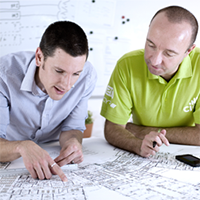 Want help choosing with your AV system design or product specification?
Want help choosing with your AV system design or product specification?
CIE is one of the UK's leading and most innovative professional AV distributors and is a leading provider of AV signal and HDBaseT professional systems and devices.
With over 50 years experience in supply and system design for many of the UK's largest, high profile audio projects, our AV experts provide a unique level of technical support and customer service.
Call the CIE AV experts now on T. 0115 9770075 or email us at [email protected]
 Got a question for the HowToAV team?..
Got a question for the HowToAV team?..
HowToAV.tv provides a whole host of tips, tricks and technology know-how for the professional and residential AV sectors.
Subscribe to our YouTube channel now at howtoav.tv for all the latest video casts or send us your questions to [email protected]
Featured Products
